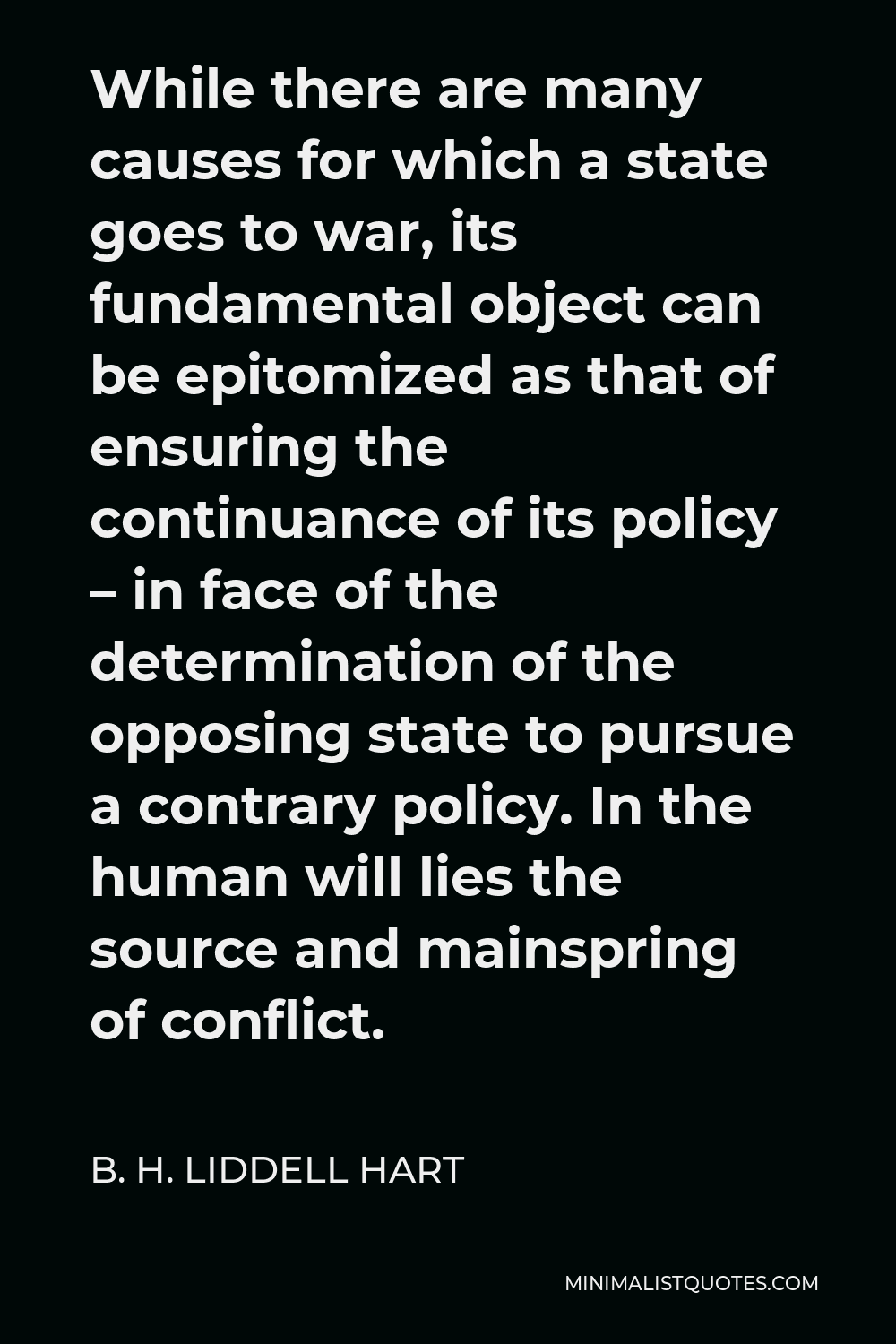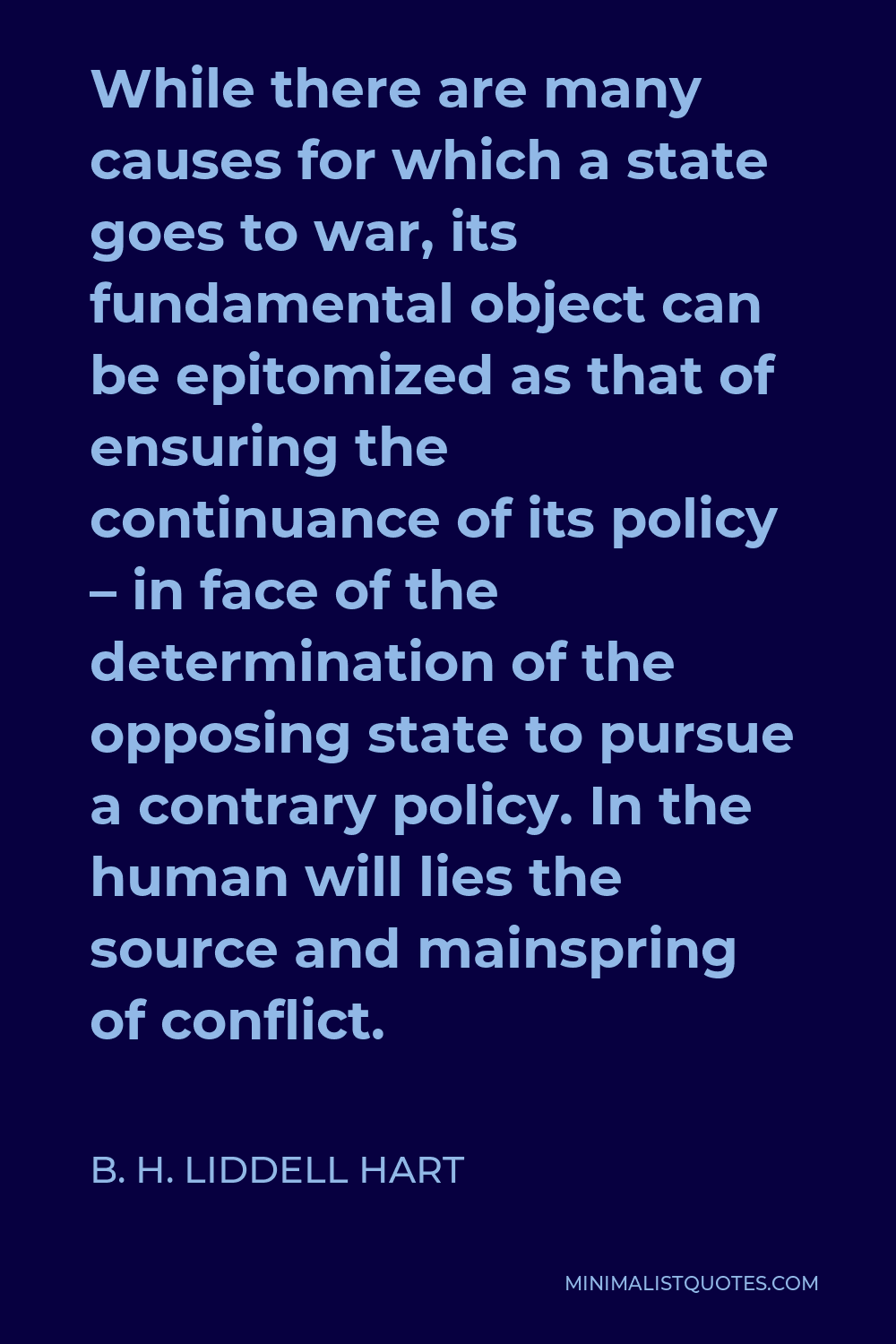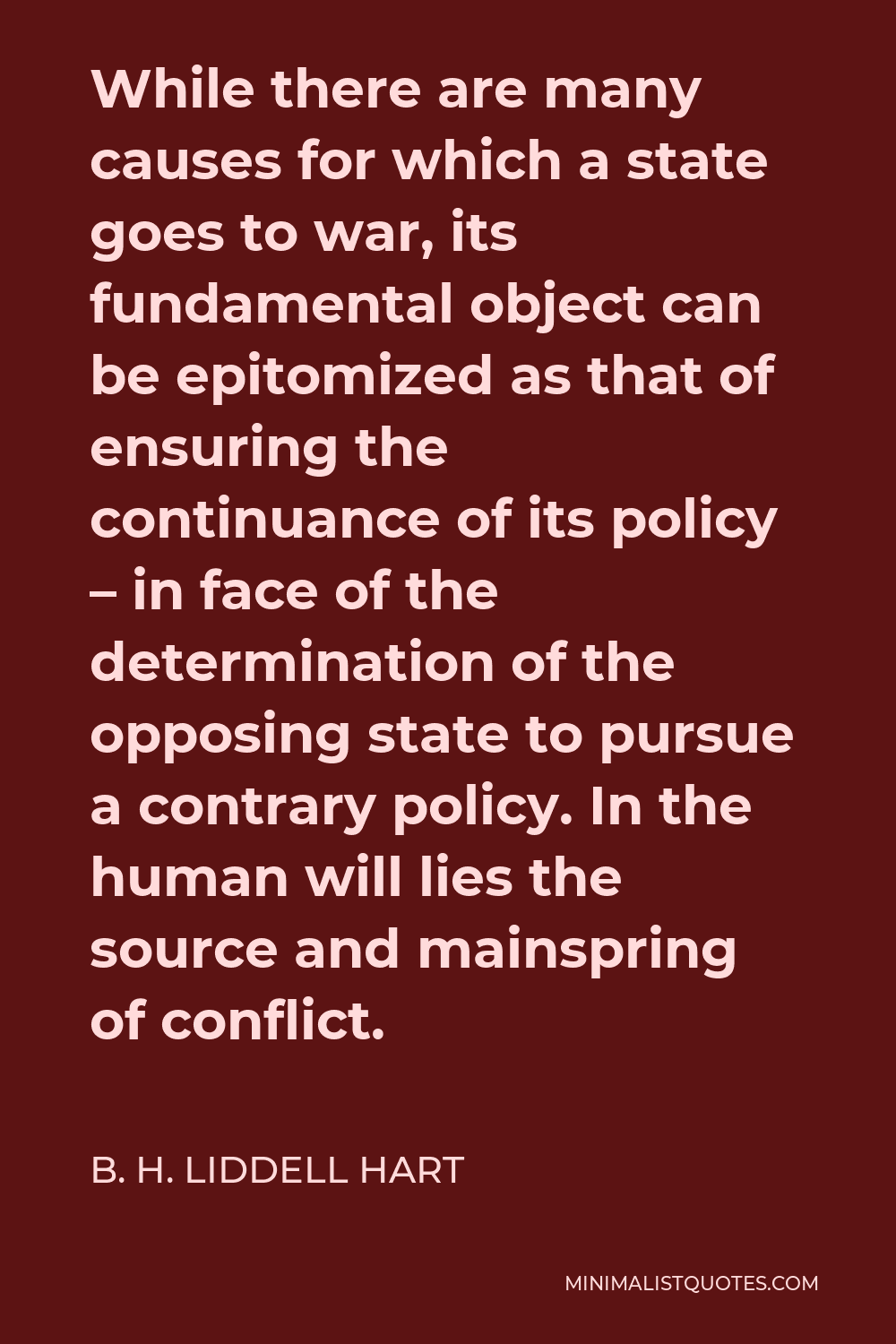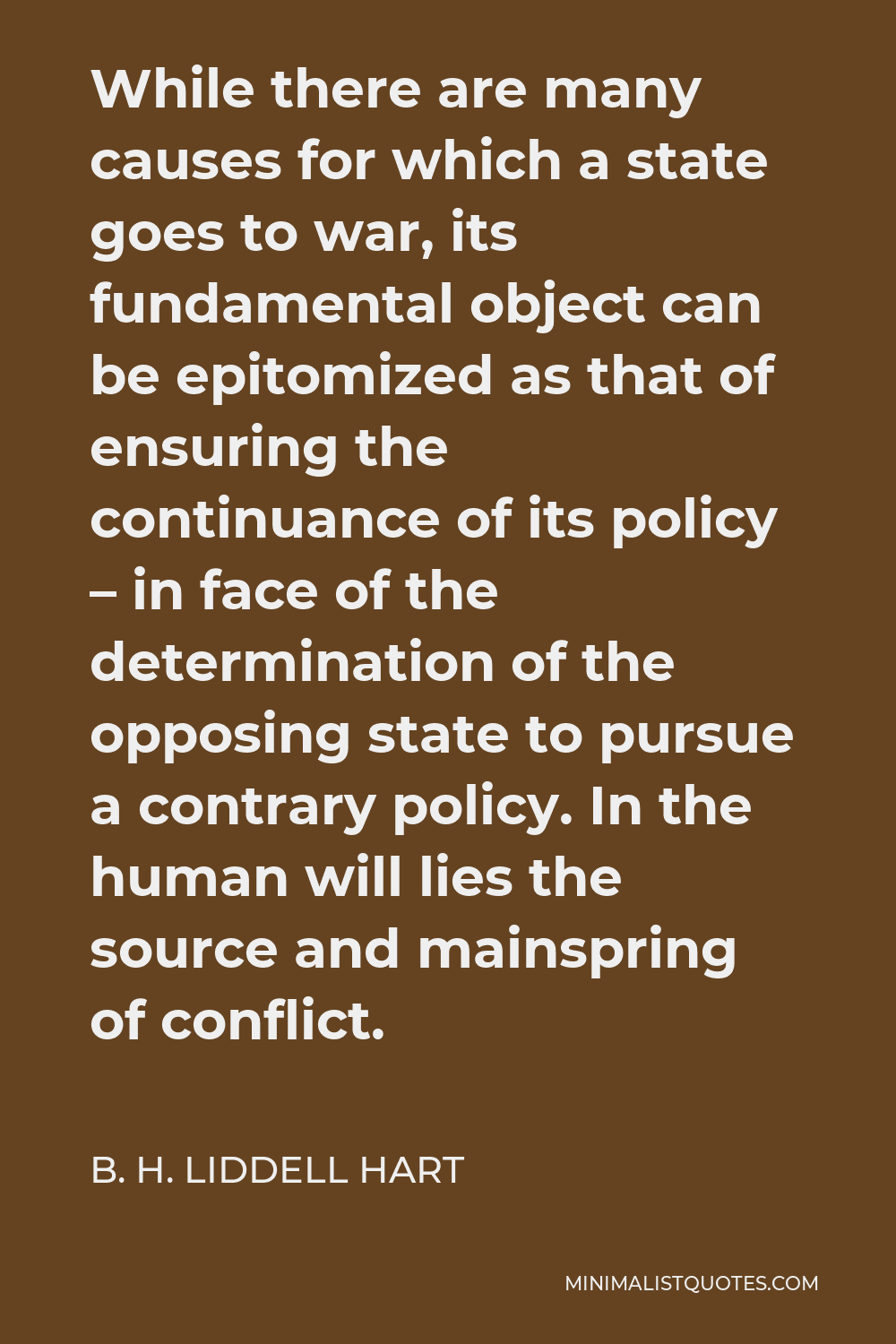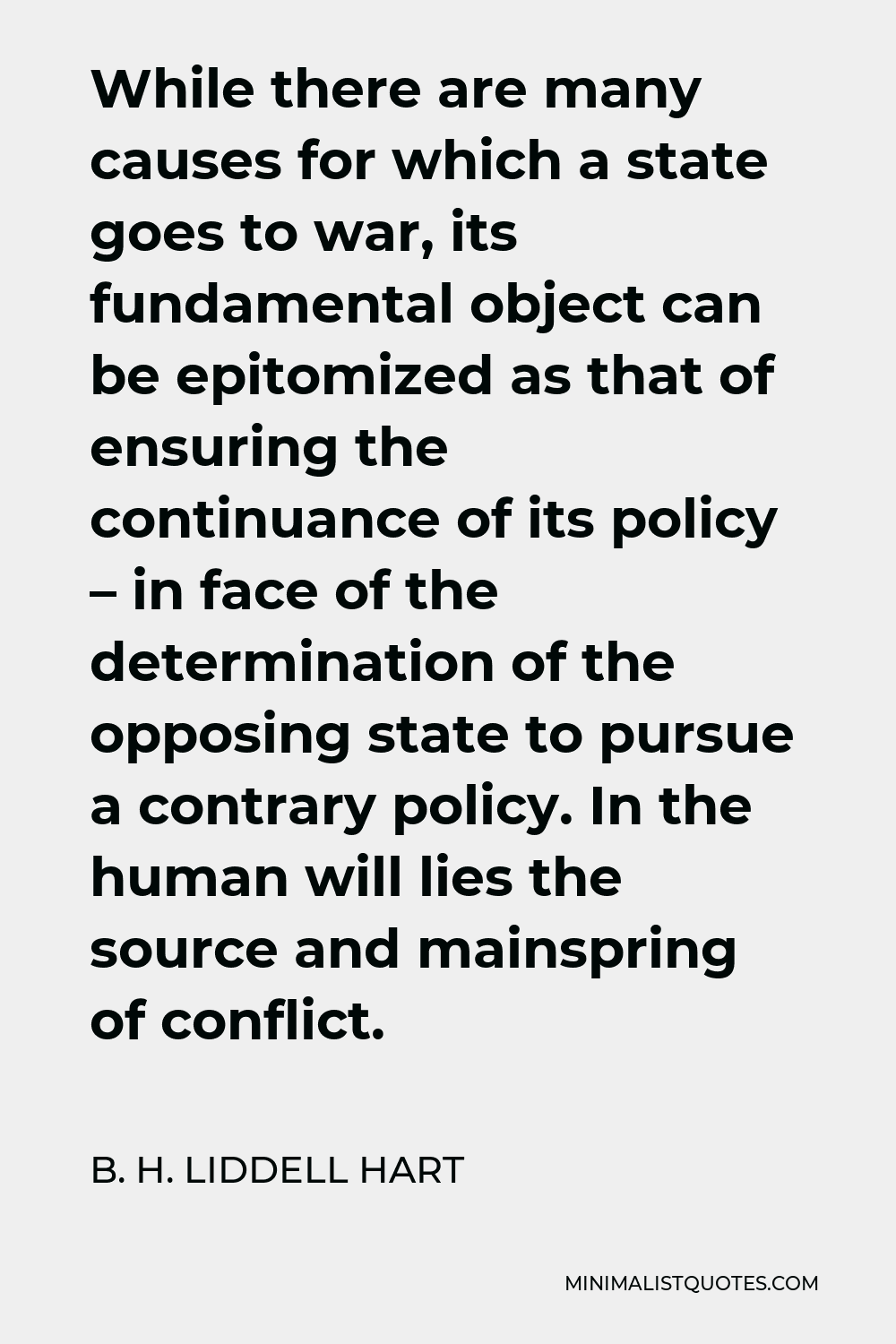The theory of the indirect approach operates on the line of least expectation.
B. H. LIDDELL HARTWhile there are many causes for which a state goes to war, its fundamental object can be epitomized as that of ensuring the continuance of its policy – in face of the determination of the opposing state to pursue a contrary policy. In the human will lies the source and mainspring of conflict.
More B. H. Liddell Hart Quotes
-





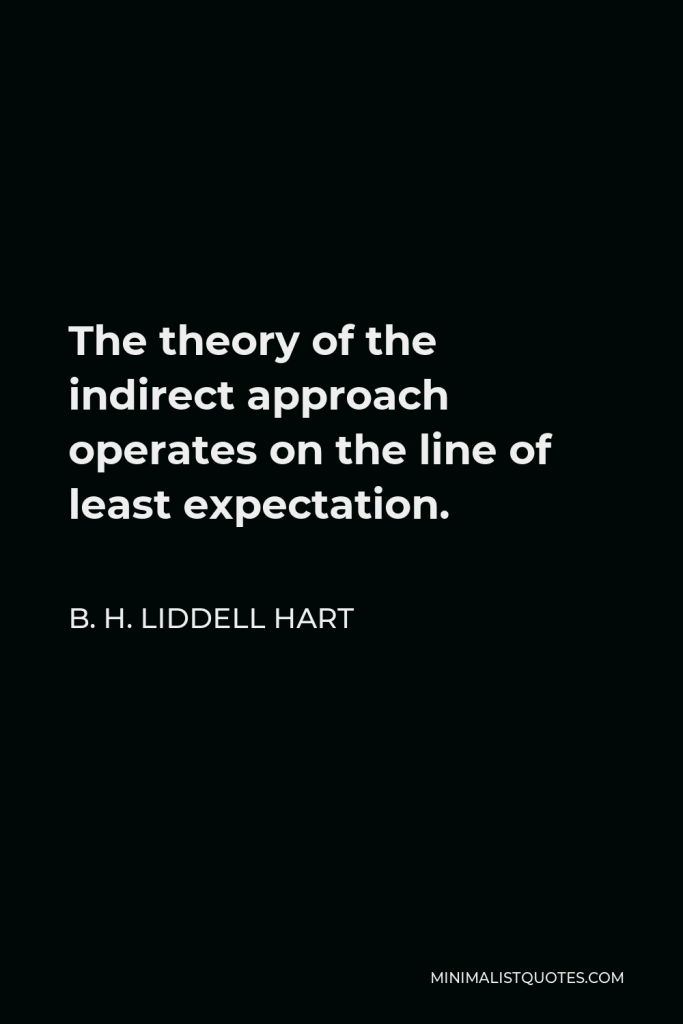

-





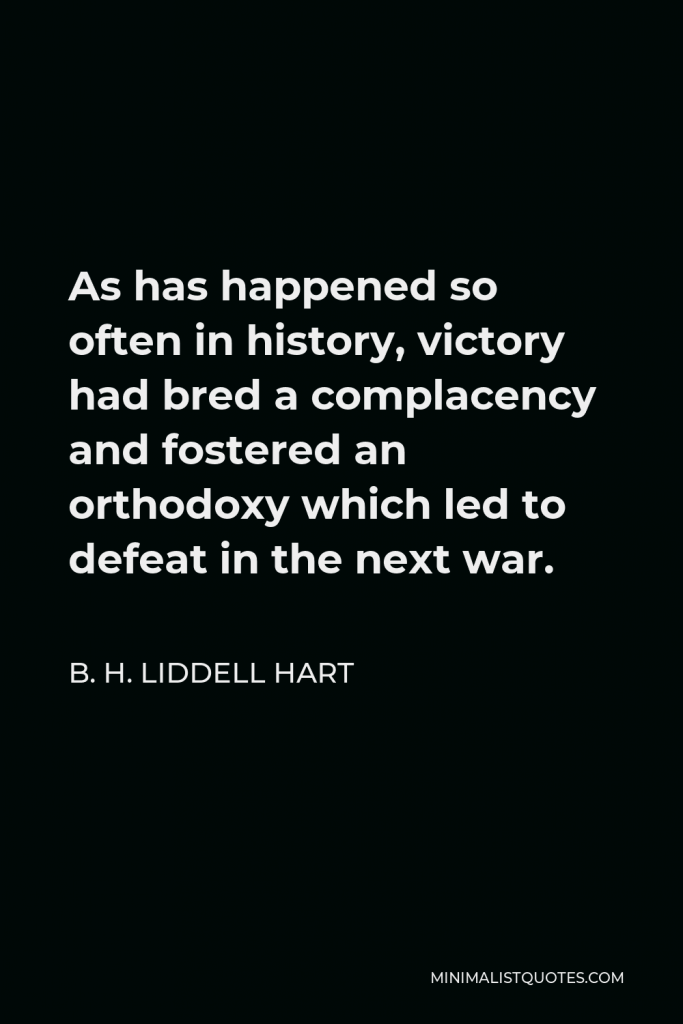

As has happened so often in history, victory had bred a complacency and fostered an orthodoxy which led to defeat in the next war.
B. H. LIDDELL HART -





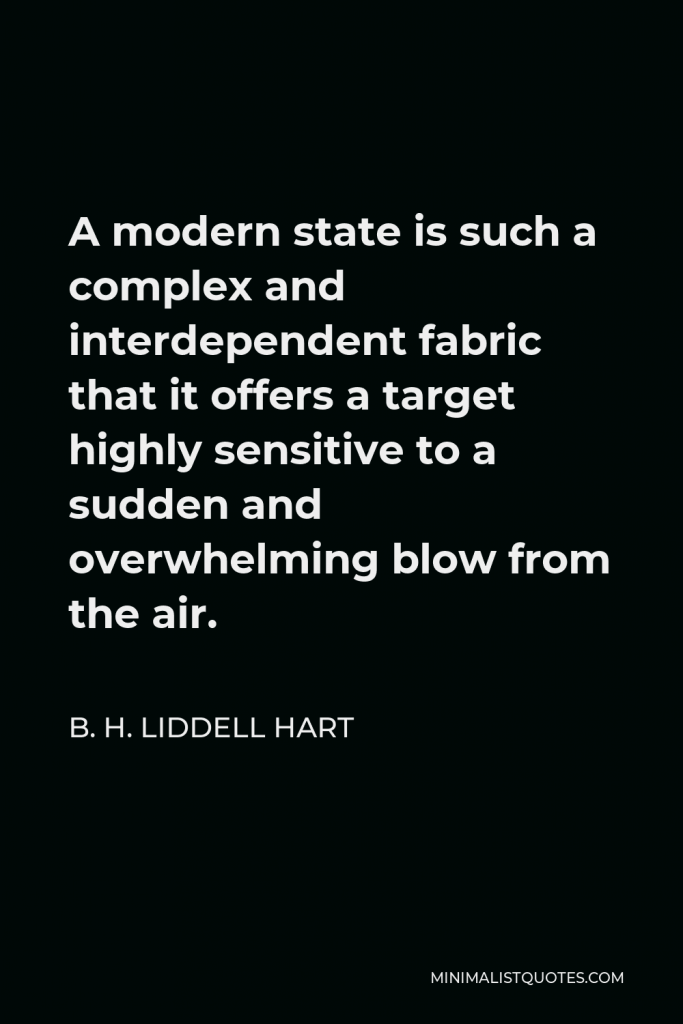

A modern state is such a complex and interdependent fabric that it offers a target highly sensitive to a sudden and overwhelming blow from the air.
B. H. LIDDELL HART -





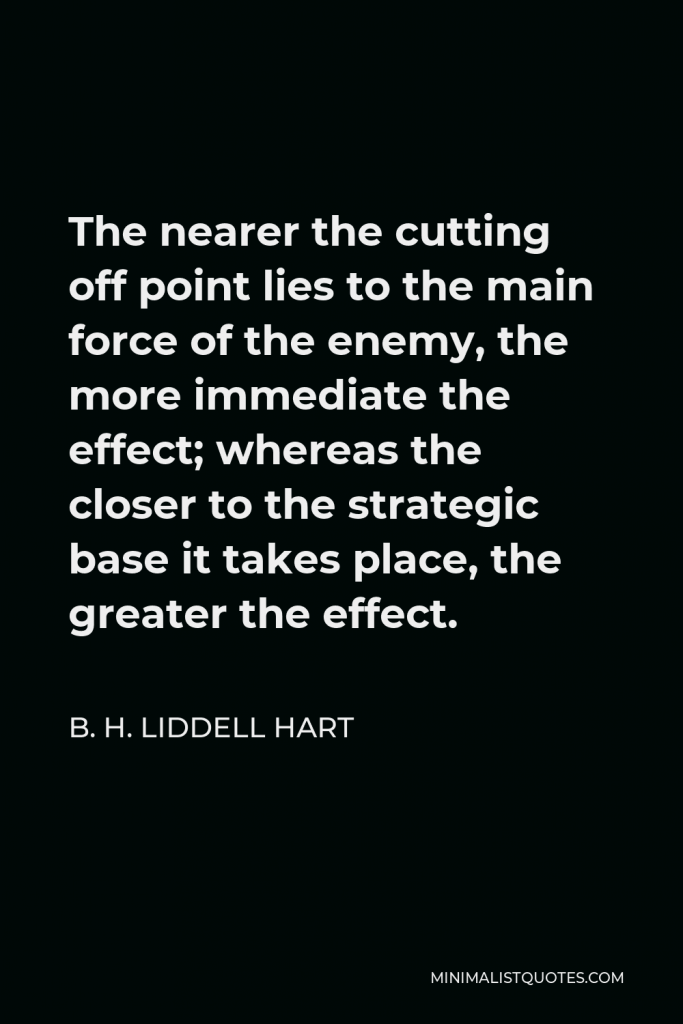

The nearer the cutting off point lies to the main force of the enemy, the more immediate the effect; whereas the closer to the strategic base it takes place, the greater the effect.
B. H. LIDDELL HART -





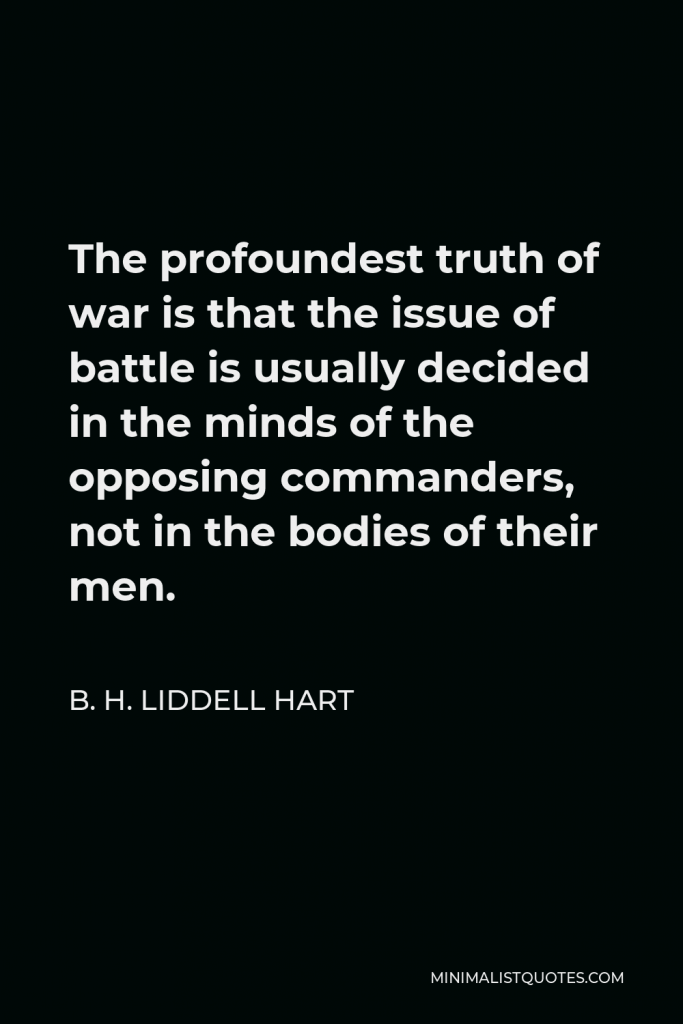

The profoundest truth of war is that the issue of battle is usually decided in the minds of the opposing commanders, not in the bodies of their men.
B. H. LIDDELL HART -





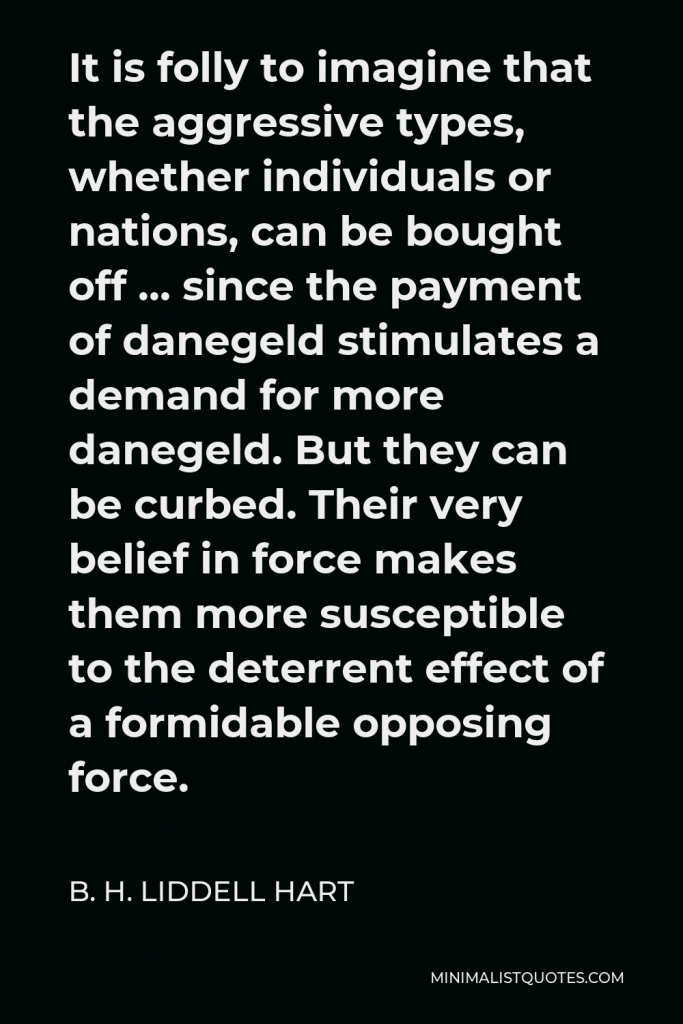

It is folly to imagine that the aggressive types, whether individuals or nations, can be bought off … since the payment of danegeld stimulates a demand for more danegeld. But they can be curbed. Their very belief in force makes them more susceptible to the deterrent effect of a formidable opposing force.
B. H. LIDDELL HART -






The implied threat of using nuclear weapons to curb guerrillas was as absurd as to talk of using a sledge hammer to ward off a swarm of mosquitoes.
B. H. LIDDELL HART -





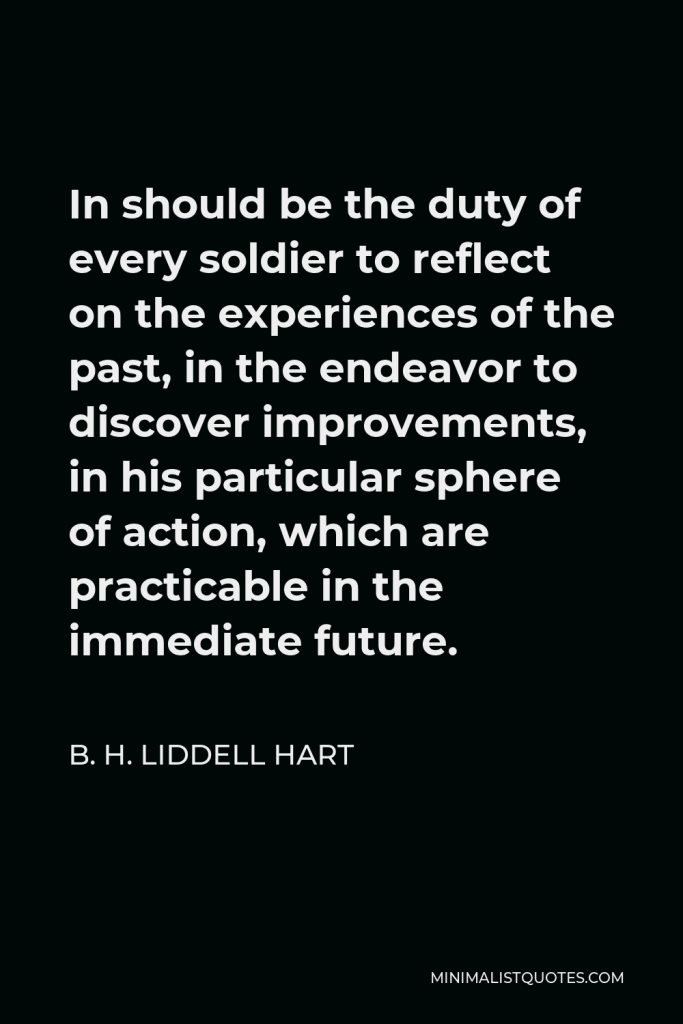

In should be the duty of every soldier to reflect on the experiences of the past, in the endeavor to discover improvements, in his particular sphere of action, which are practicable in the immediate future.
B. H. LIDDELL HART -





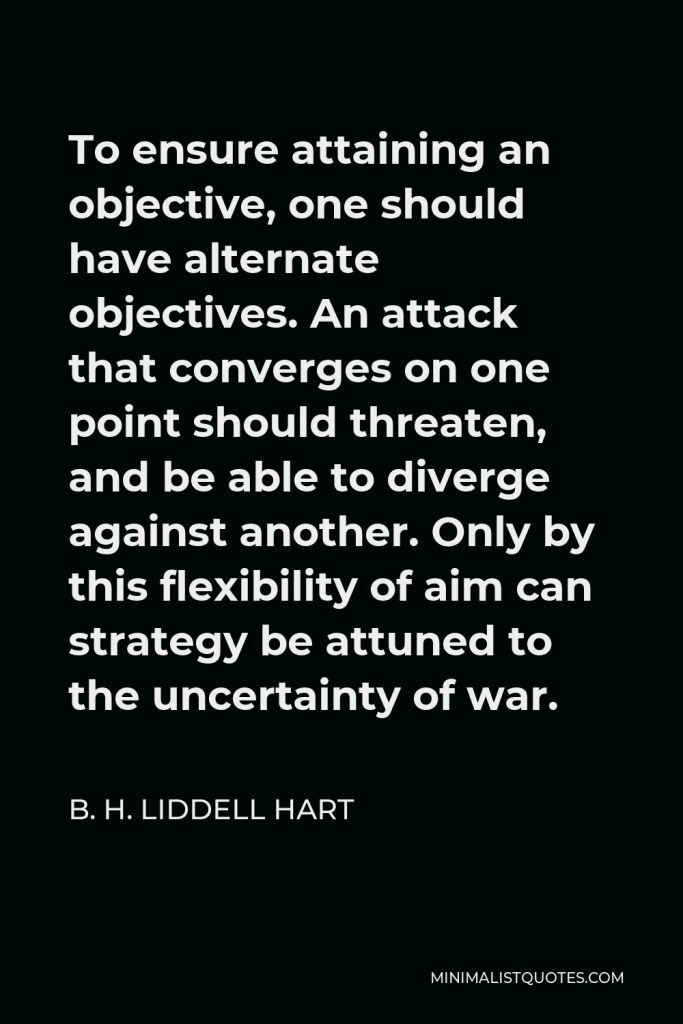

To ensure attaining an objective, one should have alternate objectives. An attack that converges on one point should threaten, and be able to diverge against another. Only by this flexibility of aim can strategy be attuned to the uncertainty of war.
B. H. LIDDELL HART -





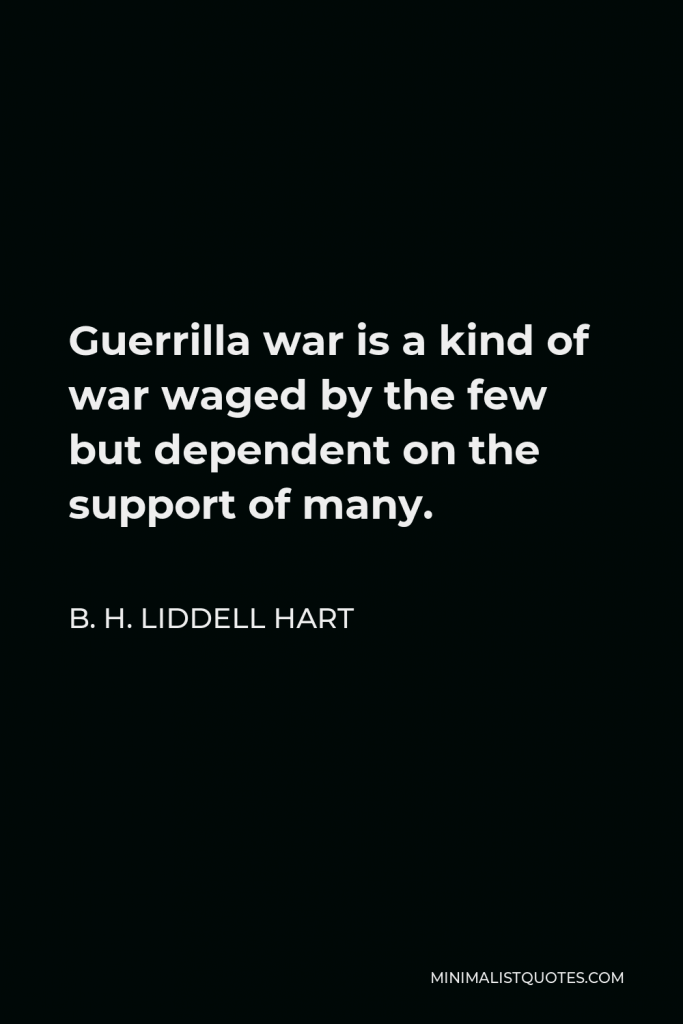

Guerrilla war is a kind of war waged by the few but dependent on the support of many.
B. H. LIDDELL HART -







Avoid self-righteousness like the devil- nothing is so self-blinding.
B. H. LIDDELL HART -





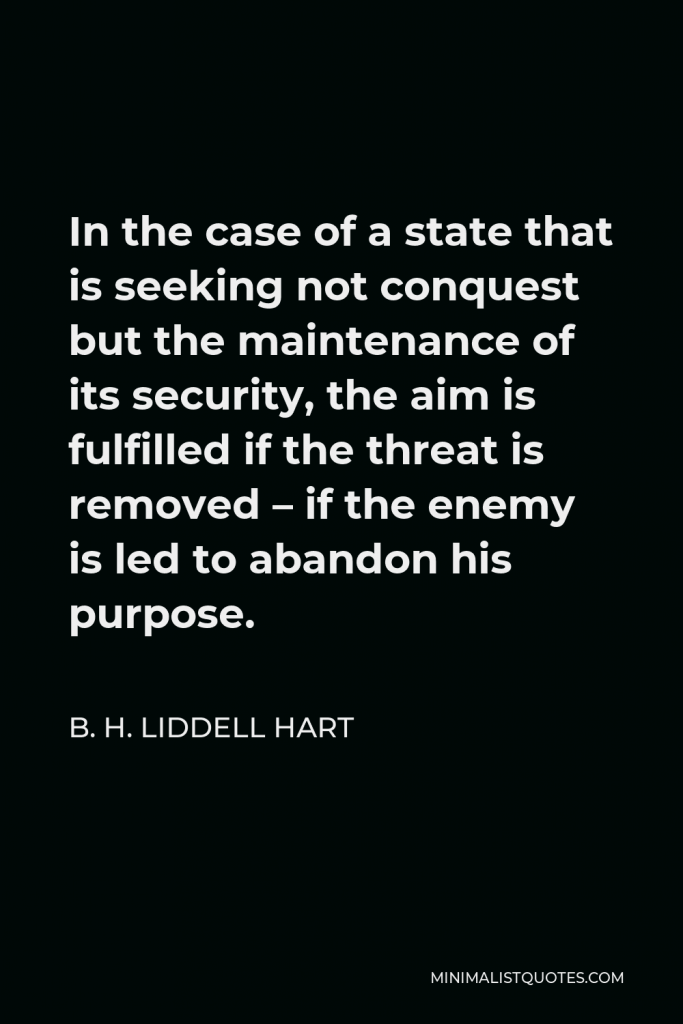

In the case of a state that is seeking not conquest but the maintenance of its security, the aim is fulfilled if the threat is removed – if the enemy is led to abandon his purpose.
B. H. LIDDELL HART -





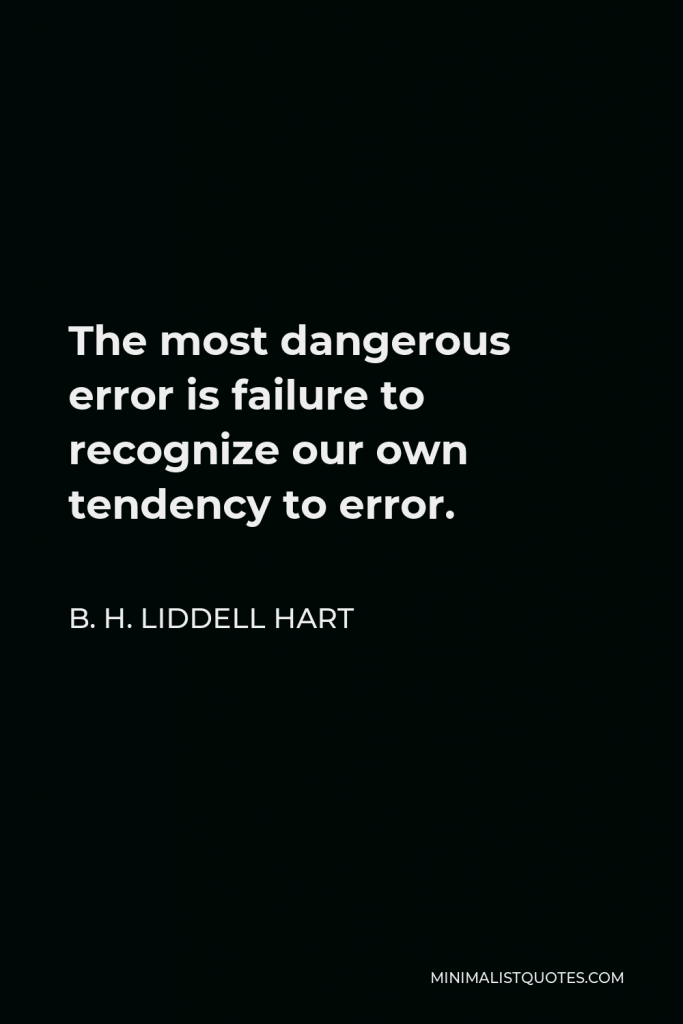

The most dangerous error is failure to recognize our own tendency to error.
B. H. LIDDELL HART -





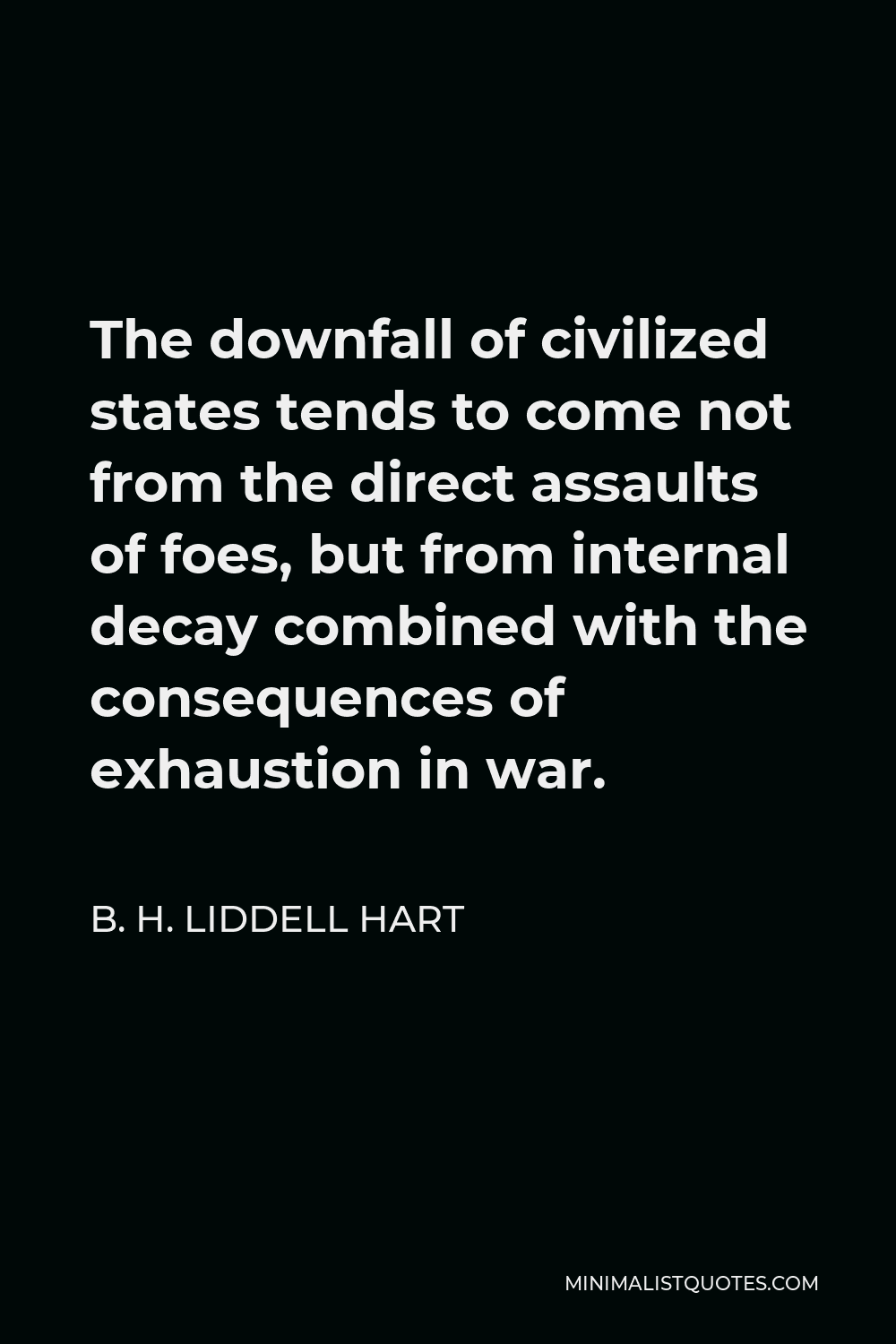
The downfall of civilized states tends to come not from the direct assaults of foes, but from internal decay combined with the consequences of exhaustion in war.
B. H. LIDDELL HART -





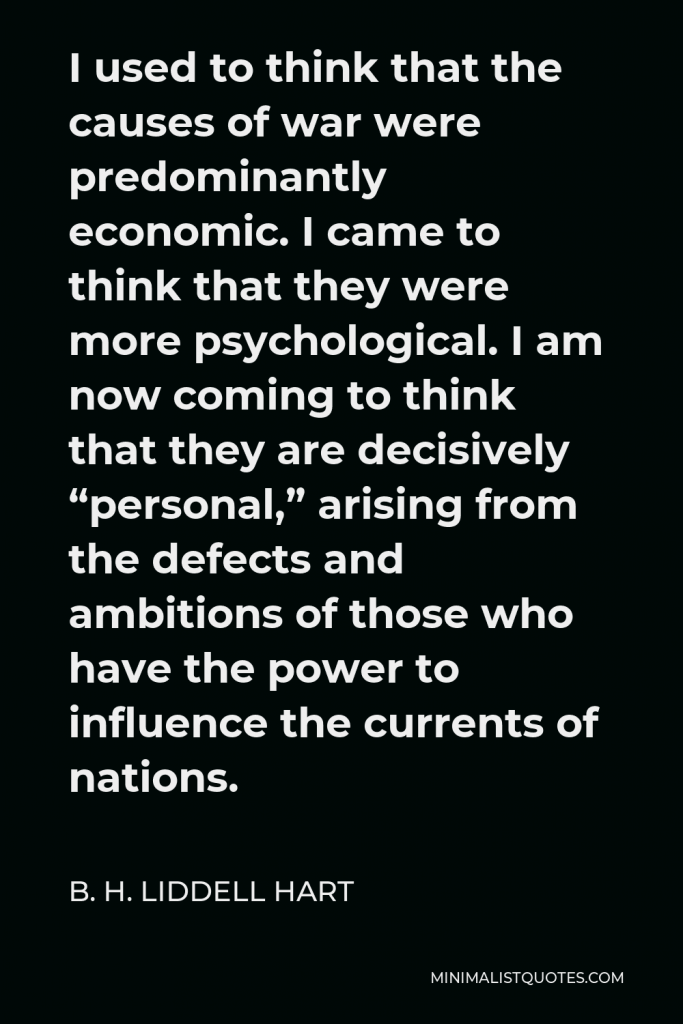

I used to think that the causes of war were predominantly economic. I came to think that they were more psychological. I am now coming to think that they are decisively “personal,” arising from the defects and ambitions of those who have the power to influence the currents of nations.
B. H. LIDDELL HART -





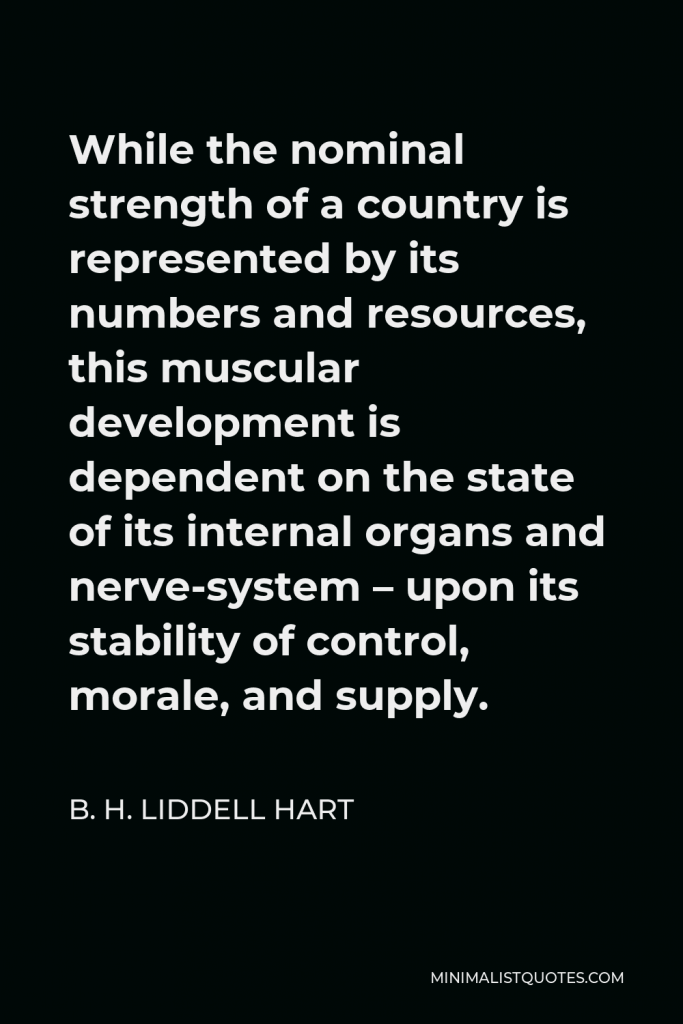

While the nominal strength of a country is represented by its numbers and resources, this muscular development is dependent on the state of its internal organs and nerve-system – upon its stability of control, morale, and supply.
B. H. LIDDELL HART
